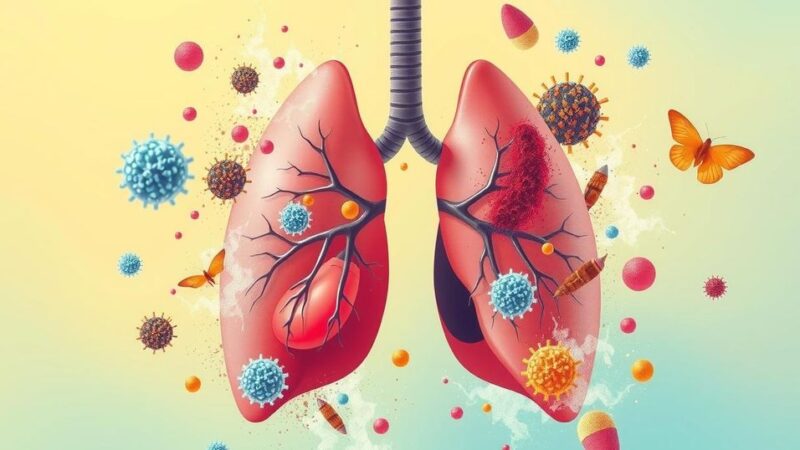Cervical cancer significantly affects women, especially in sub-Saharan Africa, where the burden is highest. Involving men as stakeholders in prevention strategies can enhance access to services and promote health equity. Education is vital to inform men about cervical cancer and encourage their support. An inclusive approach to health initiatives can address barriers women face and lead to more effective cancer prevention outcomes.
Cervical cancer poses a major public health concern globally, especially in low- and middle-income nations. In sub-Saharan Africa (SSA), 19 out of the 20 countries with the highest cervical cancer burden are identified by the WHO. Though cervical cancer predominantly impacts women, engaging men as stakeholders can enhance access to prevention services and promote equity in healthcare for women in SSA. Men’s involvement is essential due to the male-dominated social, economic, and political structures in these communities. Previous approaches focusing solely on women have limited impact; involving men can empower them as advocates and allies. Research indicates that in regions where men participate, there is greater uptake of screening services and decreased loss to follow-up for women requiring treatment. Obstacles women face in accessing preventive services, such as opposition from men regarding healthcare interactions, can be mitigated by men’s participation. Additionally, men often lack the knowledge to support cervical cancer prevention initiatives. Educating men about the causes, screening, and treatment options is critical to garner their support for health interventions, including vaccination and closure of myths that link cervical cancer to promiscuity. Addressing men’s roles in providing emotional and financial support during women’s treatments, which may involve abstinence from sexual activity, is also vital. Utilizing radio and engaging communication strategies can effectively reach men with vital cervical cancer information. Engaging men in cervical cancer prevention can improve overall awareness in communities. Even with progress in gender equality, men retain significant power in SSA societies, influencing health decisions and resource allocations. Therefore, an inclusive approach can leverage this influence to foster advocacy and resource distribution for cervical cancer prevention, especially in rural areas where men typically manage economic resources. Men’s involvement also extends beyond advocacy; they are crucial for sustainable funding, as they comprise most decision-making bodies impacting public health resources. To achieve equitable access to cervical cancer prevention, a gender-inclusive strategy is essential in SSA. Including men does not challenge gender equality; instead, it strengthens prevention efforts by incorporating overlooked stakeholders. Research should explore men’s perspectives on their roles in cervical cancer prevention to foster their engagement. Collaboration with men is fundamental for improving healthcare access and achieving health equity. Political will and funding are equally important; Rwanda’s commitment to cervical cancer elimination exemplifies this with its achievements in universal HPV vaccination. Overall, local ownership of health initiatives is important for the effectiveness of cervical cancer prevention programs.
Cervical cancer is a critical global health issue, especially affecting women in low-resource regions. In sub-Saharan Africa, men’s involvement in healthcare roles provides an underutilized opportunity to improve women’s access to cervical cancer prevention services. The sociocultural dynamics in many SSA communities necessitate that men play a collaborative role in health initiatives for women. Comprehensive education and engagement of men can break down barriers and enhance support systems for women undergoing preventive measures such as screenings and vaccinations.
Men’s participation is crucial in cervical cancer prevention strategies in sub-Saharan Africa. By integrating men as stakeholders, significant advancements can be made in healthcare access and education, reducing barriers and fostering support for women. Engaging men can help address misconceptions, promote preventive measures, and ultimately contribute to achieving health equity. It’s imperative for ongoing efforts to be inclusive and consider men’s roles in health decision-making to ensure sustainable progress in cancer prevention.
Sumber Asli: www.frontiersin.org






